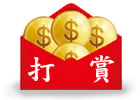【看中國2013年11月13日訊】
羅納的.里根
在德國布蘭登堡大門的演說
1987年6月12日,西柏林
科爾首相,市長先生,女士們先生們:
二十年以前,肯尼迪總統曾訪問柏林,在市政廳對這個城市的人們以及全世界的人們講話。從那時起,有另外兩位美國總統到過這裡。今天,我本人,第二次到訪你們這座城市。
我們,幾位美國總統,到柏林來,是因為我們有責任在這個地方聲張自由。但是我必須承認,我們被此地吸引還有另外一個原因:那就是這座城市的歷史感——比我們的國家還要久遠500年的歷史;是Grunewald和Tiergarten的美麗;更多的,是你們的勇氣和果敢。或許作曲家鮑爾.林克,更為瞭解美國的總統們。你們看,正如在我之前蒞臨過這裡的幾位總統,我今天到這裡來是因為,無論我到哪裡,無論我做什麼,我總是要到柏林來一趟,至今我還在柏林存有一隻衣箱。
對全歐洲各地的聽眾們,我要表達我最熱切的問候以及來自美國人民的最良好的意願。對那些東柏林的聽眾,這裡另有特別的致意:儘管我無法與你們謀面,如同站在我面前的西德聽眾們,我也向你們致以由衷的祝福。在我能與你們匯聚一堂之前,我只能先站在此地,與你們西柏林的同胞們在一起,認同一種堅定執著,一種不可改變的信念:柏林,只有一個。
在我身後,豎立著一堵牆,把這座城市自由的區域包圍起來,這是一列巨大的壁壘,把整個歐洲大陸闢為兩半。從波羅的海以南,這列圍牆縱貫德國,帶刺的鐵絲網,混凝土圍障,隔離帶以及哨卡和崗樓,像一個巨大的切開的傷口。再往南,或許還存在著一串看不見的或許並不昭彰的圍牆,然而,手握鋼槍的士兵和巡查哨卻無時無刻不在那裡執行監視——還在限制人們旅行的權利,集權國家仍然在那裡對普普通通的男人和女人們施加強權控制。
然而,在此地,在柏林,突兀的圍牆最為醒目;這裡,圍牆切割了你們的城市,新聞圖片和電視屏幕已經把這個殘酷的景象揭示給全世界。站在布蘭登堡大門之前,每個德國人與自己的同胞都天各一方。每個德國人都不得不面對這一處歷史的傷疤。馮.維塞克總統曾說過,「只要布蘭登堡大門依然緊閉,德國問題就解決不了。」
然而今天......今天我要說:只要這座大門還關閉著,只要大家還忍看這處傷疤的存在,懸而未決的就不僅僅是德國問題,而是關諸全人類自由的問題。
是的,我到這裡,不是來表達悲天憫人的情緒的,因為我在柏林察覺到希望的訊息,即便是這堵牆的巨大陰影,也遮蔽不住勝利的曙光。
1945年,同樣在這樣的春日,柏林的人民走出防空掩體,看到的是戰後的滿目瘡痍。數千英里之外,美國人們伸出援手相助。1947年,國務秘書——如同你們所瞭解的——喬治.馬歇爾宣布了舉世聞名的馬歇爾計畫。正是在40年前的這個月份,他說,「我們的政策不是針對任何國家或任何信條的,而是針對人類的飢餓、貧困、絕望和混亂的。」
不久前,在德國議會大廈,我見到了馬歇爾計畫的紀念展示。我被一處戰爭殘存的建築震撼了——一處燒燬後重建的建築殘留。我知道,與我同年齡段的一代人,看到這個殘存建築都能回憶起這座城市裡戰前星羅棋布的古典建築群。戰爭的殘骸簡單地敘說到,「馬歇爾計畫曾在這裡幫助我們,強化自由世界的力量。」 在西方,一個強大的,自由的世界已經夢想成真。日本也已經從廢墟中站立起來,成為經濟上的巨人。義大利、法國、比利時——幾乎所有西歐國家都獲得了政治和經濟上的重生;歐洲共同體已經建立起來。
在西德,在這裡,在柏林,也出現了經濟上的奇蹟。阿登納,懷特,以及其他領導人都懂得實行自由政治的重要性——同樣的,也是真理——只要新聞記者能有表達的自由,繁榮就會到來;只要農人和商人們都能享有經濟自由,繁榮就會到來。德國領導人——他們降低了關稅,擴展了自由貿易,降低了國人的賦稅。僅在1950到1960年間,西德和柏林這邊人民的生活水平就翻了一番。四十年前還是一片廢墟,如今的西柏林已經成為德國最偉大的工業城市;繁忙的辦公樓,精美的住區和公寓,氣派非凡的大街,幽深的林蔭大道和廣袤的綠地公園。這裡,城市文化曾經被摧毀殆盡,今天已經有了兩所著名的大學,有了交響音樂廳和大劇院,有了無數電影院和博物館。這裡有欲求,有充足的食品、衣物、車輛——有無盡的美妙商品。從毀滅,從廢墟中,你們,德國人,在自由之下,重建了這座城市,讓她再一次成為地球上最偉大的一個城市。現在,蘇聯或許另有自己的打算。但是我的朋友們,這裡有些事情,是蘇聯人不能指望的:柏林人的心願,是的,柏林人的幽默,還有,柏林人的意志。
1950年代——在1950年代,何魯曉夫曾預言,「我們最終將埋葬你們。」但是今天的西方,我們看到一個自由的世界,已經到達人類歷史上不曾有過的繁榮昌盛。在共產主義世界那邊,我們看到的是失敗、技術落後、人民健康水平的下降、甚至無法滿足基本的生存需求......過於匱乏的食品供應。甚至到了今天,蘇聯依然無法養活自己。四十年之後,在這裡,面對全世界,有一個偉大的、無法逃避的結論:自由引領繁榮,自由,才能讓國與國之間世代幽遠的仇怨為和平與友好所取代。自由才是最終的勝利者。
現在......現在,蘇聯人自己,或許正在以一種有限的方式,漸漸理解自由的重要性。我們聽到來自莫斯科的許多聲音,關於改革與開放的新政策。一些政治犯已經被釋放。一些境外的廣播也不再遭到阻隔和干擾。一些經濟企業已經從國家控制下獲得了極大的經營自由。這是不是蘇聯一系列偉大變革的開始?還是他們做給西方看某種虛假姿態,只是為了不進行根本的變革而強化原有的蘇聯體制?我們歡迎變革和開放;因為我們相信,自由和安全是並存的,人類自由的進步——人類自由的進步,只會給世界帶來和平。
在蘇聯,已經出現了我們不可誤解的跡象,那就是會帶來自由與和平的戲劇性進步的跡象。
總書記戈爾巴喬夫先生,如果你需求和平,如果你為蘇聯和東歐的人民尋求繁榮,如果你需求人類的解放,請你到這裡來,到這座大門來。
戈爾巴喬夫先生,敞開這座大門。
戈爾巴喬夫先生......戈爾巴喬夫先生,推倒這面牆!
我知道,人們恐懼這個大陸上戰爭和分裂的痛苦,我想你們保證:我的國家將努力幫助你們克服這些障礙。可以確定的是,我們在西方,必須抵抗蘇聯的擴張。因此,我們必須保有不可突破的國防力量。無可置疑的是,我們尋求和平;因此我們必須盡力削減雙方的軍事力量。
十年以前,蘇聯就以新的武力威脅向西方聯盟發起挑戰,研製出數百個新的、更為致命的SS-20核導彈,能把歐洲每個首都轟炸一遍。
西方聯盟的回應是,讓自己也擁有相應的軍事實力(除非蘇聯同意協商更好的方案)——所謂的,削減雙方的武器裝備。有好幾個月時間,蘇聯拒絕開誠佈公地協商。作為西方聯盟,相應地,只能進一步裝備自己的抵抗實力。曾有過艱難的時日,正如我1982年訪問這個城市時的情形,抗議者在街上遊行,蘇聯人從談判桌旁走開。
但是過後,西方一直保持著堅強的抵抗。我要邀請兩位昔日的抗議者......我要邀請今天的抗議者......讓他們對這一事實做出評判:
由於我們的強大,蘇聯人回到談判桌上來了。由於我們的強大,今天我們終於接近了可能性,不僅僅是限制了武器的增長,還第一次限制了地球上所有核武器的數量和等級。
在我發言的此時此刻,北約部長們正在冰島會晤,議論我們提議的削減這些武器的計畫。所有在日內瓦的會談,我們同樣提出深化削減戰略武器的議題。儘管我們在力促削減軍備,我向你們保證:我們要抱有抵抗蘇聯擴張能力的軍事實力,在一旦必須的情況下。在我們同盟國之間,美國要力爭戰略防禦機制......達到這樣的程度:為必須防禦的提供防禦保障;它是這樣一個系統,簡言之,這個系統不會以民眾為打擊目標,只是為他們提供安全屏障。這些措施只意味著,要增強全歐洲以及全世界的安全。
我們必須牢記一個至關重要的事實:東方與西方,大家並非由於擁有武力而互不信任;相反,我們是由於互不信任,才武裝到牙齒。
我們的分歧實際上並不在於武器,而是關於自由。當肯尼迪總統24年前在市政廳演講的時候,自由就是有侷限性的,柏林正陷於圍困中。今天,儘管這座城市還承受著種種壓力,柏林這一方卻保衛著自己的自由。自由,它本身,也正在地球上行走。
在菲律賓、在中南美,民主已經獲得新生。跨過太平洋,自由市場在那裡創造著一個接一個的經濟奇蹟。在工業化國家,一場技術革命正在發生,以計算機技術以及電訊技術迅猛的、戲劇性的進步為顯著標誌。
在歐洲,僅僅一個國家,以及它控制著的國家,還在拒絕加入自由的國際社會。然而,在這個經濟成倍激增,信息和發明激增的時代,蘇聯面臨著抉擇:它或者做出根本的變革,或者成為孤家寡人。
今天,此刻,正是希望的時刻。我們在西方,時刻準備著與東方共同促進真正的開放,打破隔絕人民的壁壘,創造安全和自由的世界。的確,沒有比柏林更好的地方,東西方交融的這一點,來開始這個行動。
柏林自由的人們:今天,如同在過去一樣,美國人民在密切關注各方遵守1971年四方協約的執行。讓我們利用這個機會,在慶祝這座城市奠立750週年紀念日的時刻,共同呼喚一個新的時代,呼喚新的進展,為柏林未來更豐美的生活。讓我們一起維護聯邦德國與民主德國之間,由1971年協定批准維護的紐帶。
這裡,我邀請戈爾巴喬夫先生:讓我們一起工作,努力把柏林的東西兩部分合為一體,讓所有的居民能在世界上這座偉大的城市中共享美好的生活。
開放東西德,乃至開放全歐洲,東方與西方,讓我們把這座城市的活力帶到更遠的地方,找到更好的途徑,讓德國享有更便利、更舒適、更發達的經濟生活。
我們期待著這樣一天,西柏林能變成整個中歐的樞紐航空港。
美國將與我們的法國和英國盟友一起,做好幫助和準備,共同帶來柏林的國際會晤。讓柏林成為聯合國會議的適合場所,各國可以在此地聚集一堂,共同探討人權、武器控制或其他需要世界性合作的議題。
沒有更好的地方,比柏林更可以建立對未來的希望,啟迪年輕人的心智了,我們將榮幸地在這裡召集夏季的青年交流、文化活動,讓其他來自東柏林的年輕人也能在一起分享這些交流的快樂。我的法國和英國的朋友們,我肯定,他們也會做同樣的努力。我的希望是,東德也正式邀請西德的年輕人過去進行交流。
最後的提議,也是最貼近我本人意願的:體育體現著快樂和高尚的精神,你們或許注意到,南韓,1988年主辦奧林比克運動會的時候,就曾欣然讓北朝鮮承辦了一些賽事。各種國際體育競技也可以在這座城市的各個地點舉行。如果在未來幾年內,東西柏林共同舉辦奧運會,將會展示給世界一種怎樣的開放盛況呢。
我曾說過,近四十年的時間裏,你們柏林人創造了偉大的城市。你們,儘管承受著威脅......蘇聯試圖擴散東方的影響,還有阻隔和封鎖。今天,這個城市生機勃勃,儘管承受著這堵牆體現著的種種挑戰。是什麼讓你們在這裡堅持?當然,自不必說的是你們無比的堅韌,是你們無比的勇氣。但是我相信,另有更為深刻的東西存在,那是涵蓋著柏林萬千氣象和生活方式所展示的東西——那不僅僅是情緒化的因素。沒有對困惑的清晰醒悟,沒有人能長久的生活在柏林。相反,另有某種東西,面對柏林生活的艱辛而欣然接受,繼續為使柏林更美好驕人而貢獻出努力,使之與圍牆所隔絕起來的別處——極權主義治下,阻礙人們釋放人類能力與精神的那些地方——迥然相異,還有某種精神,能對這座城市發出強有力的聲音,對它的未來,也對自由,肯定地說:「是的!」 一句話,我認為,能讓你們守護在柏林的,是愛。
愛,既博大深遠,又是持久執著的。
或許,這才是一切的根基,是東德和西德本質上最大的差異。極權主義國家製造出的是落後,因為它是在對人們的精神施暴,它遏制人類創造、歡樂和信仰的衝動。即便從愛與信仰的象徵性事物上,極權主義者所看到的也都是對自己的冒犯。
數年以前,在東德開始重建自己教堂的時候,他們建立起一個世俗的構造物:亞歷山大廣場上的電視塔。
實際上從那時起,官方就開始糾正他們所認為的那座電視塔的一個主要缺陷,他們把塔頂上的玻璃半球體塗上油漆和各種遮蔽物。然而,直到今天,只要陽光照射到那個玻璃半球——那個可以俯瞰整個柏林的玻璃半球,反射出的強光都會形成一個耀眼的十字!
這裡,在柏林,正如這個城市本身,愛的象徵,信仰的象徵,是不可征服的。
正如我不久前從Reichstag——德國統一的化身——眺望時見到的情形:我注意到人們在柏林牆上噴塗的文字,很可能是年輕的德國人書寫上去的:「這座大牆終將倒塌。信念終將成為現實。」
是的,縱貫歐洲的這座大牆必將倒塌,因為它支撐不了信念;它支撐不了真理,它支撐不了自由。
另外,在我的話結束之前,我還要再說一點。我來訪後遇到一些遊行示威者,抗議我的到訪,對我提出質疑。對他們,那些抗議者,我只想說一點。我想知道,他們是否能捫心自問,假如擁有那種他們此刻執意追求的政府,是否還有人能做他們此刻正在做的事情。
感謝大家。上帝保佑你們所有的人。謝謝!
Tear Down This Wall
June 12, 1987
This speech by President Ronald Reagan to the people of West Berlin contains one of the most memorable lines spoken during his presidency. The Berlin Wall, referred to by the President, was built by Communists in August 1961 to keep Germans from escaping Communist-dominated East Berlin into Democratic West Berlin. The twelve-foot concrete wall extended for a hundred miles, surrounding West Berlin, and included electrified fences and guard posts. The wall stood as a stark symbol of the decades-old Cold War between the United States and Soviet Union in which the two politically opposed superpowers continually wrestled for dominance, stopping just short of actual warfare.
Chancellor Kohl, Governing Mayor Diepgen, ladies and gentlemen: Twenty-four years ago, President John F. Kennedy visited Berlin, speaking to the people of this city and the world at the City Hall. Well, since then two other presidents have come, each in his turn, to Berlin. And today I, myself, make my second visit to your city.
We come to Berlin, we American presidents, because it's our duty to speak, in this place, of freedom. But I must confess, we're drawn here by other things as well: by the feeling of history in this city, more than 500 years older than our own nation; by the beauty of the Grunewald and the Tiergarten; most of all, by your courage and determination. Perhaps the composer Paul Lincke understood something about American presidents. You see, like so many presidents before me, I come here today because wherever I go, whatever I do: Ich hab noch einen Koffer in Berlin. [I still have a suitcase in Berlin.]
Our gathering today is being broadcast throughout Western Europe and North America. I understand that it is being seen and heard as well in the East. To those listening throughout Eastern Europe, a special word: Although I cannot be with you, I address my remarks to you just as surely as to those standing here before me. For I join you, as I join your fellow countrymen in the West, in this firm, this unalterable belief: Es gibt nur ein Berlin. [There is only one Berlin.]
Behind me stands a wall that encircles the free sectors of this city, part of a vast system of barriers that divides the entire continent of Europe. From the Baltic, south, those barriers cut across Germany in a gash of barbed wire, concrete, dog runs, and guard towers. Farther south, there may be no visible, no obvious wall. But there remain armed guards and checkpoints all the same--still a restriction on the right to travel, still an instrument to impose upon ordinary men and women the will of a totalitarian state. Yet it is here in Berlin where the wall emerges most clearly; here, cutting across your city, where the news photo and the television screen have imprinted this brutal division of a continent upon the mind of the world. Standing before the Brandenburg Gate, every man is a German, separated from his fellow men. Every man is a Berliner, forced to look upon a scar.
President von Weizsacker has said, "The German question is open as long as the Brandenburg Gate is closed." Today I say: As long as the gate is closed, as long as this scar of a wall is permitted to stand, it is not the German question alone that remains open, but the question of freedom for all mankind. Yet I do not come here to lament. For I find in Berlin a message of hope, even in the shadow of this wall, a message of triumph.
In this season of spring in 1945, the people of Berlin emerged from their air-raid shelters to find devastation. Thousands of miles away, the people of the United States reached out to help. And in 1947 Secretary of State--as you've been told--George Marshall announced the creation of what would become known as the Marshall Plan. Speaking precisely 40 years ago this month, he said: "Our policy is directed not against any country or doctrine, but against hunger, poverty, desperation, and chaos."
In the Reichstag a few moments ago, I saw a display commemorating this 40th anniversary of the Marshall Plan. I was struck by the sign on a burnt-out, gutted structure that was being rebuilt. I understand that Berliners of my own generation can remember seeing signs like it dotted throughout the western sectors of the city. The sign read simply: "The Marshall Plan is helping here to strengthen the free world." A strong, free world in the West, that dream became real. Japan rose from ruin to become an economic giant. Italy, France, Belgium--virtually every nation in Western Europe saw political and economic rebirth; the European Community was founded.
In West Germany and here in Berlin, there took place an economic miracle, the Wirtschaftswunder. Adenauer, Erhard, Reuter, and other leaders understood the practical importance of liberty--that just as truth can flourish only when the journalist is given freedom of speech, so prosperity can come about only when the farmer and businessman enjoy economic freedom. The German leaders reduced tariffs, expanded free trade, lowered taxes. From 1950 to 1960 alone, the standard of living in West Germany and Berlin doubled.
Where four decades ago there was rubble, today in West Berlin there is the greatest industrial output of any city in Germany--busy office blocks, fine homes and apartments, proud avenues, and the spreading lawns of parkland. Where a city's culture seemed to have been destroyed, today there are two great universities, orchestras and an opera, countless theaters, and museums. Where there was want, today there's abundance--food, clothing, automobiles--the wonderful goods of the Ku'damm. From devastation, from utter ruin, you Berliners have, in freedom, rebuilt a city that once again ranks as one of the greatest on earth. The Soviets may have had other plans. But my friends, there were a few things the Soviets didn't count on--Berliner Herz, Berliner Humor, ja, und Berliner Schnauze. [Berliner heart, Berliner humor, yes, and a Berliner Schnauze.]
In the 1950s, Khrushchev predicted: "We will bury you." But in the West today, we see a free world that has achieved a level of prosperity and well-being unprecedented in all human history. In the Communist world, we see failure, technological backwardness, declining standards of health, even want of the most basic kind--too little food. Even today, the Soviet Union still cannot feed itself. After these four decades, then, there stands before the entire world one great and inescapable conclusion: Freedom leads to prosperity. Freedom replaces the ancient hatreds among the nations with comity and peace. Freedom is the victor.
And now the Soviets themselves may, in a limited way, be coming to understand the importance of freedom. We hear much from Moscow about a new policy of reform and openness. Some political prisoners have been released. Certain foreign news broadcasts are no longer being jammed. Some economic enterprises have been permitted to operate with greater freedom from state control.
Are these the beginnings of profound changes in the Soviet state? Or are they token gestures, intended to raise false hopes in the West, or to strengthen the Soviet system without changing it? We welcome change and openness; for we believe that freedom and security go together, that the advance of human liberty can only strengthen the cause of world peace. There is one sign the Soviets can make that would be unmistakable, that would advance dramatically the cause of freedom and peace.
General Secretary Gorbachev, if you seek peace, if you seek prosperity for the Soviet Union and Eastern Europe, if you seek liberalization: Come here to this gate! Mr. Gorbachev, open this gate! Mr. Gorbachev, tear down this wall!
I understand the fear of war and the pain of division that afflict this continent-- and I pledge to you my country's efforts to help overcome these burdens. To be sure, we in the West must resist Soviet expansion. So we must maintain defenses of unassailable strength. Yet we seek peace; so we must strive to reduce arms on both sides.
Beginning 10 years ago, the Soviets challenged the Western alliance with a grave new threat, hundreds of new and more deadly SS-20 nuclear missiles, capable of striking every capital in Europe. The Western alliance responded by committing itself to a counter-deployment unless the Soviets agreed to negotiate a better solution; namely, the elimination of such weapons on both sides. For many months, the Soviets refused to bargain in earnestness. As the alliance, in turn, prepared to go forward with its counter-deployment, there were difficult days--days of protests like those during my 1982 visit to this city--and the Soviets later walked away from the table.
But through it all, the alliance held firm. And I invite those who protested then-- I invite those who protest today--to mark this fact: Because we remained strong, the Soviets came back to the table. And because we remained strong, today we have within reach the possibility, not merely of limiting the growth of arms, but of eliminating, for the first time, an entire class of nuclear weapons from the face of the earth.
As I speak, NATO ministers are meeting in Iceland to review the progress of our proposals for eliminating these weapons. At the talks in Geneva, we have also proposed deep cuts in strategic offensive weapons. And the Western allies have likewise made far-reaching proposals to reduce the danger of conventional war and to place a total ban on chemical weapons.
While we pursue these arms reductions, I pledge to you that we will maintain the capacity to deter Soviet aggression at any level at which it might occur. And in cooperation with many of our allies, the United States is pursuing the Strategic Defense Initiative--research to base deterrence not on the threat of offensive retaliation, but on defenses that truly defend; on systems, in short, that will not target populations, but shield them. By these means we seek to increase the safety of Europe and all the world. But we must remember a crucial fact: East and West do not mistrust each other because we are armed; we are armed because we mistrust each other. And our differences are not about weapons but about liberty. When President Kennedy spoke at the City Hall those 24 years ago, freedom was encircled, Berlin was under siege. And today, despite all the pressures upon this city, Berlin stands secure in its liberty. And freedom itself is transforming the globe.
In the Philippines, in South and Central America, democracy has been given a rebirth. Throughout the Pacific, free markets are working miracle after miracle of economic growth. In the industrialized nations, a technological revolution is taking place--a revolution marked by rapid, dramatic advances in computers and telecommunications.
In Europe, only one nation and those it controls refuse to join the community of freedom. Yet in this age of redoubled economic growth, of information and innovation, the Soviet Union faces a choice: It must make fundamental changes, or it will become obsolete.
Today thus represents a moment of hope. We in the West stand ready to cooperate with the East to promote true openness, to break down barriers that separate people, to create a safe, freer world. And surely there is no better place than Berlin, the meeting place of East and West, to make a start. Free people of Berlin: Today, as in the past, the United States stands for the strict observance and full implementation of all parts of the Four Power Agreement of 1971. Let us use this occasion, the 750th anniversary of this city, to usher in a new era, to seek a still fuller, richer life for the Berlin of the future. Together, let us maintain and develop the ties between the Federal Republic and the Western sectors of Berlin, which is permitted by the 1971 agreement.
And I invite Mr. Gorbachev: Let us work to bring the Eastern and Western parts of the city closer together, so that all the inhabitants of all Berlin can enjoy the benefits that come with life in one of the great cities of the world.
To open Berlin still further to all Europe, East and West, let us expand the vital air access to this city, finding ways of making commercial air service to Berlin more convenient, more comfortable, and more economical. We look to the day when West Berlin can become one of the chief aviation hubs in all central Europe.
With our French and British partners, the United States is prepared to help bring international meetings to Berlin. It would be only fitting for Berlin to serve as the site of United Nations meetings, or world conferences on human rights and arms control or other issues that call for international cooperation.
There is no better way to establish hope for the future than to enlighten young minds, and we would be honored to sponsor summer youth exchanges, cultural events, and other programs for young Berliners from the East. Our French and British friends, I'm certain, will do the same. And it's my hope that an authority can be found in East Berlin to sponsor visits from young people of the Western sectors.
One final proposal, one close to my heart: Sport represents a source of enjoyment and ennoblement, and you may have noted that the Republic of Korea--South Korea--has offered to permit certain events of the 1988 Olympics to take place in the North. International sports competitions of all kinds could take place in both parts of this city. And what better way to demonstrate to the world the openness of this city than to offer in some future year to hold the Olympic games here in Berlin, East and West? In these four decades, as I have said, you Berliners have built a great city. You've done so in spite of threats--the Soviet attempts to impose the East-mark, the blockade. Today the city thrives in spite of the challenges implicit in the very presence of this wall. What keeps you here? Certainly there's a great deal to be said for your fortitude, for your defiant courage. But I believe there's something deeper, something that involves Berlin's whole look and feel and way of life--not mere sentiment. No one could live long in Berlin without being completely disabused of illusions. Something instead, that has seen the difficulties of life in Berlin but chose to accept them, that continues to build this good and proud city in contrast to a surrounding totalitarian presence that refuses to release human energies or aspirations. Something that speaks with a powerful voice of affirmation, that says yes to this city, yes to the future, yes to freedom. In a word, I would submit that what keeps you in Berlin is love--love both profound and abiding.
Perhaps this gets to the root of the matter, to the most fundamental distinction of all between East and West. The totalitarian world produces backwardness because it does such violence to the spirit, thwarting the human impulse to create, to enjoy, to worship. The totalitarian world finds even symbols of love and of worship an affront. Years ago, before the East Germans began rebuilding their churches, they erected a secular structure: the television tower at Alexander Platz. Virtually ever since, the authorities have been working to correct what they view as the tower's one major flaw, treating the glass sphere at the top with paints and chemicals of every kind. Yet even today when the sun strikes that sphere--that sphere that towers over all Berlin--the light makes the sign of the cross. There in Berlin, like the city itself, symbols of love, symbols of worship, cannot be suppressed.
As I looked out a moment ago from the Reichstag, that embodiment of German unity, I noticed words crudely spray-painted upon the wall, perhaps by a young Berliner: "This wall will fall. Beliefs become reality." Yes, across Europe, this wall will fall. For it cannot withstand faith; it cannot withstand truth. The wall cannot withstand freedom.
And I would like, before I close, to say one word. I have read, and I have been questioned since I've been here about certain demonstrations against my coming. And I would like to say just one thing, and to those who demonstrate so. I wonder if they have ever asked themselves that if they should have the kind of government they apparently seek, no one would ever be able to do what they're doing again.
Thank you and God bless you all.
President Ronald Reagan - June 12, 1987
来源:網文
短网址: 版權所有,任何形式轉載需本站授權許可。 嚴禁建立鏡像網站。
【誠徵榮譽會員】溪流能夠匯成大海,小善可以成就大愛。我們向全球華人誠意徵集萬名榮譽會員:每位榮譽會員每年只需支付一份訂閱費用,成為《看中國》網站的榮譽會員,就可以助力我們突破審查與封鎖,向至少10000位中國大陸同胞奉上獨立真實的關鍵資訊, 在危難時刻向他們發出預警,救他們於大瘟疫與其它社會危難之中。










